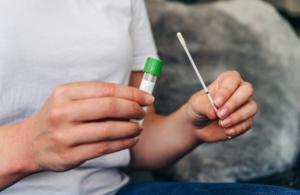- UK government confirms international travel can gradually resume from 17 May, as 12 countries and territories are added to the ‘green list’
- strict rules on testing and quarantine will remain in place to protect public health and our vaccination programme, while people should not travel to ‘amber’ and ‘red’ countries for leisure
- international travel will be different as passengers are warned to expect additional checks and longer queues at the border
Transport Secretary Grant Shapps has today (7 May 2021) announced that international travel can begin to safely reopen from 17 May, allowing people to go on foreign holidays to green list countries.
The ‘Stay in the UK’ regulation will lift on 17 May, meaning leisure travel from England will no longer be illegal. However, speaking at a No10 press conference this afternoon, the Transport Secretary outlined how strict border control measures will remain in place as international travel gradually resumes. Different levels of restriction will be applied to individuals returning to England from countries based on the traffic light system set out by the Global Travel Taskforce.
People are being guided on where they can safely visit without needing to quarantine on return to England – starting with the additions of Portugal including the Azores and Madeira, Israel and Jerusalem and Singapore among others to the ‘green list’. They will still need to take a pre-departure test up to 72 hours before their return travel, and a single PCR test on or before day 2 of arrival into England – this can be booked in the same way as is in place now, through private test providers.
Our priority remains to protect public health, which is why the ‘green’ list is currently very small, with only 12 countries and territories. As the epidemiological situation improves worldwide, it is expected that there will be more opportunities for leisure travel with a greater number of destinations added.
In total, 12 countries and territories have been added to the green list. Some of these include: Portugal including the Azores and Madeira; Australia; New Zealand; Singapore; Brunei; Iceland; Faroe Islands; Gibraltar; Falkland Islands; and Israel and Jerusalem. However, many ‘green list’ countries will continue to place restrictions on UK travellers, including quarantine measures, so passengers are encouraged to check all requirements and FCDO travel advice before they book any foreign travel.
Given that the virus is still spreading in many parts of the world, people should not be travelling to amber and red countries for leisure. 10-day managed hotel quarantine requirements will remain in place for those permitted to return to England from ‘red’ countries, and quarantine at home alongside stringent testing will be required for those returning from ‘amber’ destinations.
Countries have been allocated by ministers according to the latest scientific data, so quarantine and testing requirements on return from those countries are appropriate to the risk of coronavirus and variants of concern.
The lists will be reviewed every 3 weeks, informed by public health advice, including the Joint Biosecurity Centre’s assessment of the latest data. These regular review points will allow the government to balance helping the public to understand COVID requirements when travelling to England while allowing us to constantly evaluate the risk for different countries.
The government will also be publishing a green watchlist in the future, to provide an indication when a country is identified as a candidate for a changing country. All measures will be kept under review and further action may be taken to protect public health.
Countries will decide whether they require proof of COVID vaccination for entry, and it is the traveller’s responsibility to check individual requirements. If needed, people in England who have both vaccine doses will be able to demonstrate their COVID vaccination status via the NHS app from 17 May. Those without access to the app can request a letter from the NHS proving their vaccination status by calling 119, from 17 May. Test results will not be stated in the app and the process for booking and presenting test results for travel remains unchanged. The government is working with the devolved administrations to ensure this facility is available to everyone across the UK.
Transport Secretary Grant Shapps said:
Today marks the first step in our cautious return to international travel, with measures designed above all else to protect public health and ensure we don’t throw away the hard-fought gains we’ve all strived to earn this year.
This is a new way of doing things, and people should expect travel to be different this summer – with longer checks at the borders, as part of tough measures to prevent new strains of the virus entering the country and putting our fantastic vaccine rollout at risk.
On top of this, to continue protecting the country against new variants of coronavirus, from 4am Wednesday 12 May, the Maldives, Nepal and Turkey will be added to the red list.
When travel does restart, it will be different, most notably when returning to the UK. Reopening international travel, while maintaining 100% health checks at the border, means longer waits are likely – passengers from any destination will still be required to fill out a Passenger Locator Form (PLF), and show proof of a pre-departure test negative result. While holidaymakers may notice longer than usual queues, it is vital we maintain our stringent border checks – which are among the toughest in the world – to prevent new strains of the virus entering the country and putting our vaccine roll out at risk.
The government is constantly trying to improve processes to make them as efficient as possible to minimise wait times, and will be committing to increasing Border Force resources to manage increased demand. This includes deploying additional Border Force officers where high volumes of passengers are expected.
Border Force will be checking that arriving passengers have complied with current health measures, and passengers can help reduce delays by completing all necessary requirements before entering the country. We continue to urge airlines to carry out all necessary checks or risk facing fines of £2,000 for each passenger they carry who does not have a valid Pre-Departure Test Certificate, and £2,000 for each passenger who does not have a completed PLF.
The government will also continue with plans to integrate health measure checks into our border system and enabling checks to take place at e-gates in major ports during Summer 2021. Following the UK exit from the EU and the end of the Transition Period, UK citizens will be subject to additional checks upon entering EU countries. If travelling abroad, you need to take steps to keep safe and prepare in case things change while you are there. Check and subscribe to FCDO travel advice updates to understand the latest entry requirements and COVID 19 rules.


